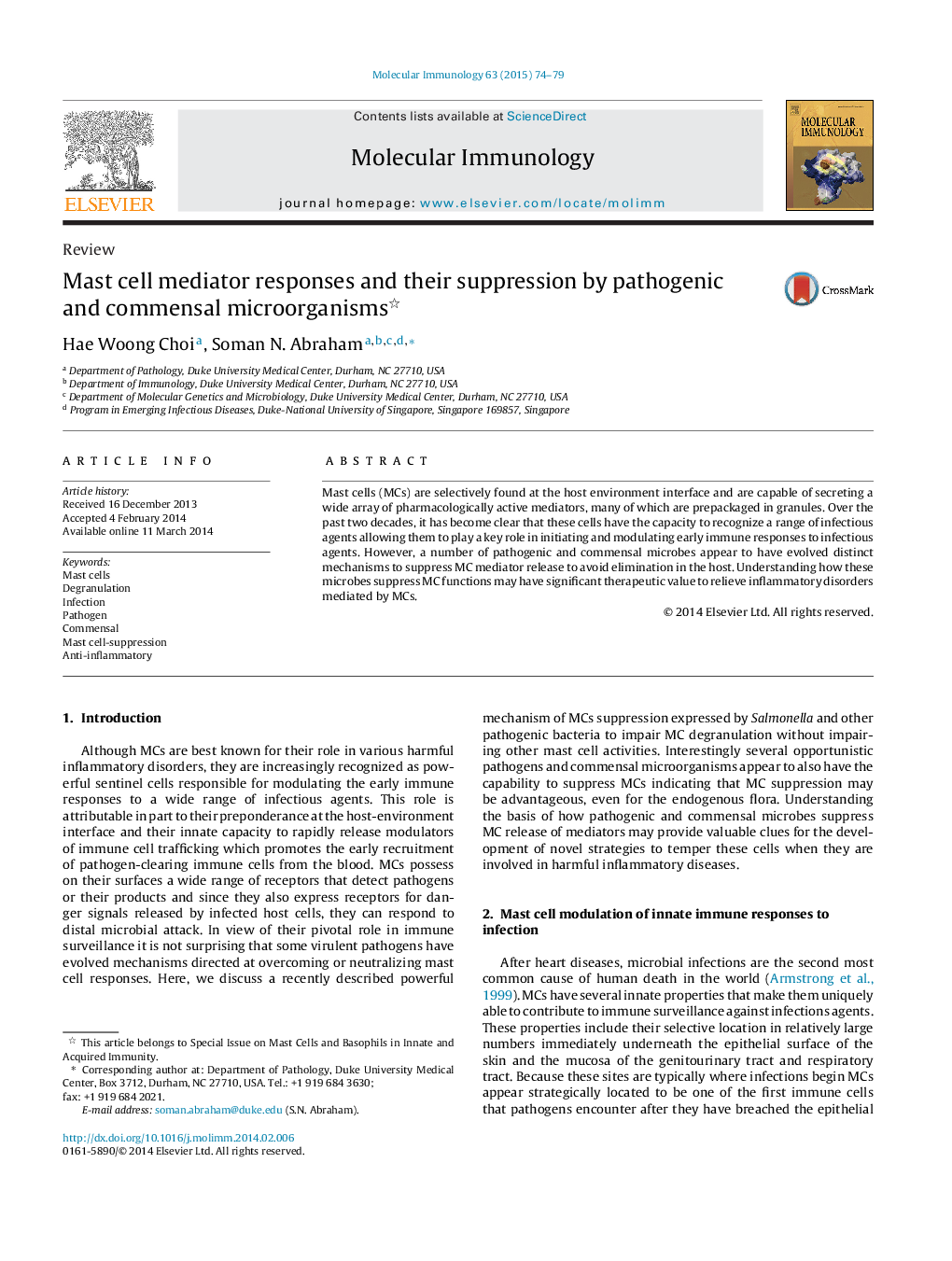| کد مقاله | کد نشریه | سال انتشار | مقاله انگلیسی | نسخه تمام متن |
|---|---|---|---|---|
| 5916832 | 1163757 | 2015 | 6 صفحه PDF | دانلود رایگان |

- Mast cells are important for modulating immunity against infectious agents.
- Mast cells modulate immunity through degranulation and mediator secretion.
- Invasive Salmonella bacteria can suppress mast cell degranulation through a phosphatase, SptP.
- The capacity to suppress mast cells is shared by select pathogens and commensal microbes.
Mast cells (MCs) are selectively found at the host environment interface and are capable of secreting a wide array of pharmacologically active mediators, many of which are prepackaged in granules. Over the past two decades, it has become clear that these cells have the capacity to recognize a range of infectious agents allowing them to play a key role in initiating and modulating early immune responses to infectious agents. However, a number of pathogenic and commensal microbes appear to have evolved distinct mechanisms to suppress MC mediator release to avoid elimination in the host. Understanding how these microbes suppress MC functions may have significant therapeutic value to relieve inflammatory disorders mediated by MCs.
Journal: Molecular Immunology - Volume 63, Issue 1, January 2015, Pages 74-79